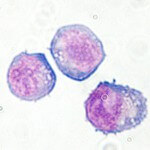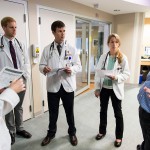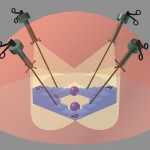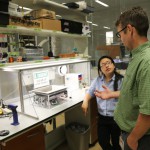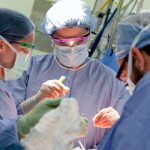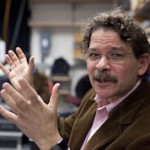Category Health & Wellness
Creating pathways: connecting American Indian students to health professions
In the last several years, NACHP and the School of Nursing have been working to break down barriers that deter American Indian students from pursuing careers in health fields with the larger vision of improving the health and wellness of American Indian communities in Wisconsin.
Researchers forge primitive human leukemia cells in lab
By generating cells with the properties of primitive human leukemia cells, researchers have established a model for studying chronic myeloid leukemia (CML) stem cells, potentially leading to better treatment options.
‘Live from Paris’ will connect Wisconsin with UN climate conference
Faculty and state business leaders in Paris to attend COP21 (Conference of the Parties to the United Nations Framework Convention on Climate Change) will connect to campus via video conferencing for a live discussion.
UHS psychologist hopes to help international students succeed
Students seek counseling at University Health Services for a variety of reasons. Now speakers of Mandarin have another option -- and advocate -- in Chinese native Canzi Wang.
Innovative cancer treatment machine: Still made in Wisconsin
Innovator-entrepreneur Thomas “Rock” Mackie’s TomoTherapy, launched in 1997, remains one of the universities’ most successful spinoff companies.
Josh Medow: Critical care for the brain
At Joshua Medow's first job, in the Neurocritical Intensive Care Unit at UW Hospital and Clinics, he saves lives. His patients have endured strokes, car accidents and shootings.
Morgridge Institute selects Pagliarini to lead campus metabolism initiative
Dave Pagliarini, a University of Wisconsin–Madison associate professor whose departmental home put metabolism research on the map worldwide, will help define the future of Wisconsin metabolism science as a lead investigator at the Morgridge Institute for Research.
Wireless microcamera clusters broaden laparoscopic imaging
A revolutionary integrated imaging system under development at the University of Wisconsin–Madison could significantly advance laparoscopy, a minimally invasive surgical procedure that, over the last half century, has seen only incremental improvements in imaging.
Report: Bicycling deaths have decreased, but adults remain at elevated risk
Overall rates for U.S. biking deaths decreased 44 percent from 1975 to 2012, according to a new report published Aug. 14 by the Centers for Disease Control and Prevention and led by Jason Vargo, an assistant scientist with UW–Madison's Nelson Institute for Environmental Studies and Global Health Institute.
Dietary intervention primes triple-negative breast cancer for targeted therapy
A diet that starves triple-negative breast cancer cells of an essential nutrient primes the cancer cells to be more easily killed by a targeted antibody treatment, UW Carbone Cancer Center scientists report in a recent publication.
Gift to Morgridge Institute ‘Fab Lab’ to boost medical device innovations
A gift to the Morgridge Institute for Research will help spur medical device innovations coming directly from doctors - the people who know firsthand where the advances are needed.
UW-Madison collaboration promotes well-being in the workplace
Standing in front of a room of business professionals, Jill McDermott shares a number: two quadrillion - the number of megabytes of information broadcast daily. She pauses to let the audience reflect on how this inundation of information contributes to distractions in the workplace that can chip away at a person's well-being and ability to respond to daily challenges, whether it's giving projects the attention they deserve or shaking off a setback or conflict with a colleague.
Protein Suggests a New Strategy to Thwart Infection
The newfound ability of a protein of the intestines and lungs to distinguish between human cells and the cells of bacterial invaders could underpin new strategies to fight infections.
Navigating multiple myeloma with ‘Google Maps’ for the cancer genome
In some ways, studying the genetics of cancer has been like examining the individual tiles on a mosaic, says David C. Schwartz, a professor of genetics and chemistry at the University of Wisconsin–Madison. To make his point, he brings his face close to the table where he sits - his mosaic for the purpose of illustration - and describes the details of each imaginary tile.
Genetic approaches to cancer, neural development lead to honor for UW–Madison scientists
Two University of Wisconsin–Madison researchers - one investigating the genetic basis of cancer growth and the other, the role of genes in neural development and learning - have earned funding and a prestigious honor from the Greater Milwaukee Foundation.
Brief alcohol screening misses mark for people who most need help, study says
As screening for alcohol problems during doctor visits has become more mainstream, a new study published in the journal Addiction finds that the technique does not increase successful referrals to alcohol counseling and treatment.


